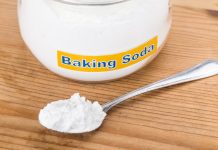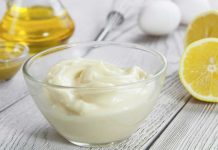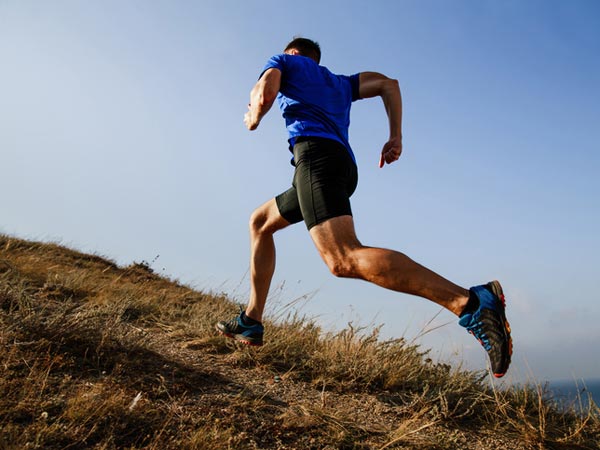Tips
Nutrients and enhancements can be a protected way for competitors to attempt to work on their exhibition, however, more exploration is important to decide the viability of certain enhancements.
It is pivotal to address a specialist prior to beginning to take any new nutrients or different enhancements. These substances can associate with different prescriptions that an individual may be taking.
Taking a lot of certain enhancements, like iron, can cause antagonistic incidental effects. Likewise, a few nutrients might be incapable except if an individual has a current lack. A specialist can test for nutrient inadequacies and exhort on the best way to address them if essential.
Individuals who feel like they have low energy in spite of practicing consistently may wish to think about different parts of their daily schedule prior to making enhancements. Eating a reasonable, nutritious eating routine and getting sufficient rest may likewise help athletic execution.
Competitors following veggie lovers and vegetarian diets might have to take specific consideration to guarantee that they are getting enough of the above supplements through their eating regimen.
A fair eating routine and refreshing way of life that incorporates sufficient rest ought to be adequate to give a great many people the energy that they need for their everyday exercises. In any case, competitors push their bodies to top execution, so these people might require a jolt of energy.
1. B vitamins
B vitamins are vital for releasing energy in the body as they aid the metabolism of carbohydrates, fats, and proteins.
Although being deficient in one or several B vitamins can affect how well a person can exercise, there is little evidence rested Source to suggest that unnecessarily taking supplements will improve performance.
As a result, it is best to see a doctor to undergo testing before choosing to take a B vitamin supplement.
Female athletes may be at risk trusted Source for deficiencies in B vitamins, which include:
- vitamin B-12
- vitamin B-6
- niacin
Having a vitamin B-12 deficiency can make people feel weak and tired. As vitamin B-12 primarily occurs in animal products, vegans and vegetarians are more likely to develop a deficiency in this vitamin.

2. Iron
Iron deficiency is common in athletes and can affect performance, according to some research.
While it can occur in males, this deficiency is more common in females, especially those in endurance sports. A Swiss review found that the rate of iron deficiency among teenage female athletes was up to 52%.
Additional researchTrusted Source found that low iron levels can cause many adverse symptoms in female athletes, including reducing endurance and increasing the amount of energy that the body uses.
The authors suggested that people could take supplements to reduce these effects, but only if dietary changes could not meet their needs. They also note that people following vegetarian or vegan diets should take extra care to ensure that they meet their required daily intake of iron, as plant-based iron is less available to the body.
People should speak to a doctor before taking iron supplements and be sure to request a blood test to check their iron levels. Taking too much iron can cause uncomfortable and even dangerous side effects.
Those with sufficient iron do not need to take a supplement.
3. Calcium and vitamin D
Calcium and vitamin D help the body build and maintain healthy bones, teeth, and muscles. These vitamins can help athletes maintain muscle mass and reduce the risk of injuries, such as bone fractures.
Calcium is available in many foods, including:
- dairy products, such as milk and yogurt
- fortified non-dairy milks, such as soy milk
- dark green vegetables
- fish with soft bones, including sardines and salmon
4. Coenzyme Q10
Studies have shown an association between low levels of coenzyme Q10 and increased fatigue. Coenzyme Q10 is an enzyme in the mitochondria, which are the parts of cells that generate energy.
Experts have linkedTrusted Source some conditions with lower levels of coenzyme Q10 in the body, including:
- neurodegenerative diseases
- fibromyalgia
- diabetes
- cancer
- mitochondrial diseases
- muscular diseases
- heart failure
Research has shown that coenzyme Q10 may improve both physical performance and “subjective fatigue” in healthy people engaging in physical activity.
The authors of a 2014 review trusted Source stated that studies have consistently associated low levels of coenzyme Q10 with fatigue. However, they noted that the results were difficult to interpret, as research papers vary in their definition of fatigue.
The research on whether coenzyme Q10 supplementation is useful for athletes has produced mixed results. For example, a 2012 study trusted Source of moderately trained men found no evidence that it benefitted their exercise capacity.
5. Creatine
Some athletes use creatine because it is legal nutritional aid for sports performance. People can get creatine from red meat and seafood, but it is also available as a supplement.
ResearchTrusted Source has shown that supplementing with creatine can increase muscle mass and improve strength when a person combines it with strength training.
Older adultsTrusted Source may also be able to use creatine to increase their lean muscle mass and muscle strength.
Commercial supplements often combine creatine with other substances. ResearchersTrusted Source have found that a creatine supplement that also contained caffeine, taurine, and amino acids helped athletes feel focused and increased the time that it took for them to feel exhausted.
It is important to note that some of the funding for this study came from companies that make supplements and other products.
6. Ashwagandha
Ashwagandha is an Ayurvedic herb. A 2015 studyTrusted Source explored the effects of ashwagandha on endurance in healthy athletic men and women.
People who received the root extract of ashwagandha had a significant increase in physical endurance after 8 and 12 weeks of treatment compared with the participants receiving a placebo.
Another study trusted Source tested the effects of ashwagandha on the endurance of elite cyclists. After 8 weeks of treatment, the cyclists taking ashwagandha took longer to feel exhausted doing a treadmill test than the cyclists who received a placebo.
































